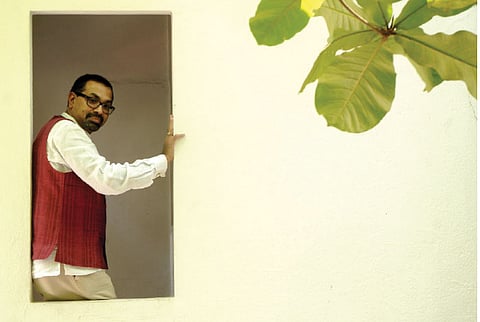

Following a mild-stroke, Rajamohan (54), a railway reservation supervisor, was under allopathic drugs for more than six months. Until he collapsed one day. Periodic check-ups failed to detect the side-effect of medication—a massive ulcer in his stomach. He woke up to an indefinite nightmare: he couldn’t stand, walk, speak or write, and had to rely on his family to perform his day-to-day activities. Worst still, he lost his memory completely, unable even to remember his name.
Today, a year later, Rajamohan travels by train to work every day, leads an active life physically and mentally, speaks well and spends quality time with his family. Rajamohan owes his second life, as he calls his incredible recovery, not just to medicines but to a blend of treatments including yoga, physiotherapy, massages, psychological counselling, cognitive retraining, relaxation techniques and nutrition that he underwent under one roof.
Slowly and steadily, Integrative Medicine (IM) is making a positive impact on many individuals with chronic and complex conditions, and changing our perceptions of disease, disability and healing.
“The IM is an amalgamation of modern scientific approaches with traditional healing practices. It bridges the limitations of allopathy and the potential of ancient wisdom in treating a person,” says renowned neuropsychiatrist Dr Ennapadam S Krishnamoorthy, founder-director of Trimed, a chain of integrative medicine centres in Chennai. Author of over 100 publications, Krishnamoorthy is also the founder-director of a neuropsychiatry group, Neurokrish.
Trimed is a classic model of integrative care. Each centre has a multi-disciplinary team comprising an allopathic physician, an ayurvedic physician, a Naturopathy and yoga physician, a team of physical, occupational and psychological therapists.
“Under IM we offer a range of disease management programmes, evolved after years of evidence-based research and clinical observation, with the safety and security of an allopathic doctor. It simultaneously addresses the problems of the mind and the body, and enable their harmonious working to help reduce pain, manage disability, tackle stress and lifestyle disorders,” Krishnamoorthy explains.
The IM helps “restore health, rejuvenates and rehabilitates” persons with mild to chronic conditions such as migraine, arthritis, neurological dysfunction, diabetes, psychosomatic disorders, obesity, dementia, anxiety disorders, depression and sexual disorders.
The first focus of allopathy is the doctor, while in IM patients need to take an active part in their healthcare. One can adopt alternative therapies as part of a healthy lifestyle. For example, one can use the Jacobson Progressive Muscle Relaxation (JPMR) to enhance sleep, or enjoy a regular massage or follow a detox diet for periodic internal cleansing.
Many of these therapies may not be scientific, but they are backed by common sense and centuries of use. They are safe with no side effects when applied properly. “Alternative therapies are not quick fixes. It takes several sessions of acupressure to show lasting effects, or several weeks for herbal supplements to work,” he clarifies.
“The IM can be effectively used as an early intervention tool for children with developmental delays. Especially ayurveda and naturopathy help hyperactive children calm down, concentrate and improve their quality of life greatly,” says Krishnamoorthy.
We come across spa-like posh centres offering a mix of treatments for a niche audience, but Trimed operates in the community health space, taking IM to the middle-class.
“The IM widens opportunities for trained medical experts who open their eyes to the possibilities in alternative treatments. However, offering various services under one roof doesn’t mean integration. It is about the right treatment in the right order and time. They should complement and not be at odds with each other. Trust and respect amongst practitioners is the fountainhead of the integrative approach,” he points out.
Alternative therapies may reduce the reliance on conventional medicine, but can never wholly replace allopathy. “For acute, serious conditions it is unsafe to adopt alternative therapies alone. Allopathy would be the best primary care choice here,” Krishnamoorthy cautions.
As he lays it out, it is all about balancing the two to live a healthy, full life. Visit trimed.co.in to know more about Integrative Medicine.